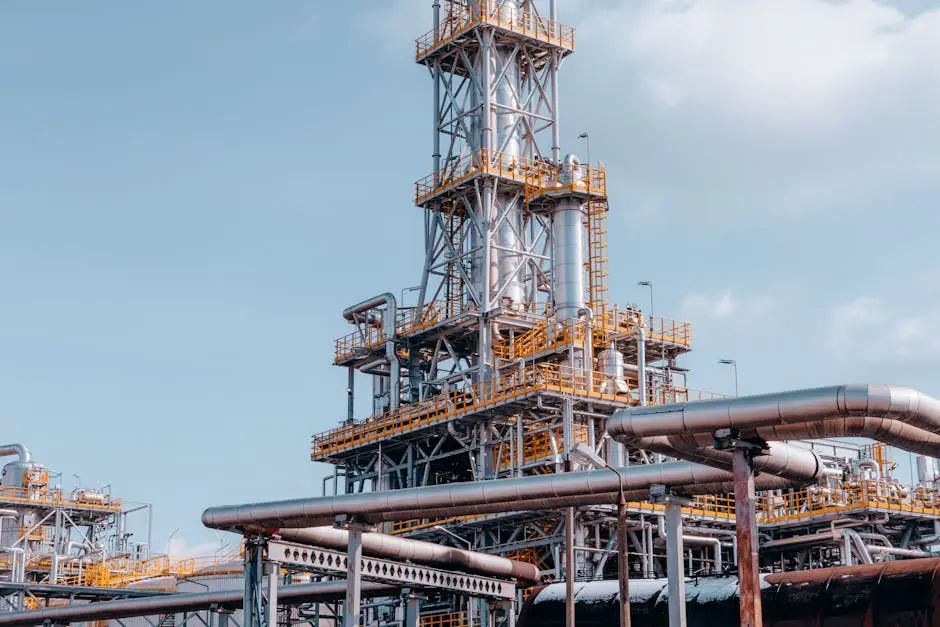Oil refineries play a crucial role in the energy sector, influencing not just local economies but also global finance. Understanding their impact on project financing is essential for investors and policymakers alike.
Understanding Oil Refineries
Oil refineries process crude oil into valuable products. They are complex facilities that require substantial investment and are pivotal in the energy supply chain.
At their core, oil refineries transform crude oil—a raw resource—into refined products like gasoline, diesel fuel, and heating oil. The intricate processes involved, such as distillation and cracking, are not only technical marvels but also require vast infrastructures. These factors make refineries vital components within the broader energy sector.
Moreover, the significance of oil refineries is further magnified by their role in job creation. They employ thousands of skilled workers directly and indirectly support many more within the supply chain. This economic contribution makes understanding their financing even more crucial.
The Financial Landscape of Oil Refineries
The operation of oil refineries necessitates considerable financial resources. Exploring how these facilities secure funding through loans and private investment gives insight into their impact on global finance.
Typically, securing financing for an oil refinery involves complex arrangements, including equity financing, debt instruments, and sometimes, government grants. For many refinery projects, the initial capital outlay can reach billions of dollars, posing a high barrier to entry. Investors often look for guaranteed returns, which can be challenging given the inherent volatility of the oil market.
In addition to direct costs, operational financing also needs to account for regulatory compliance and environmental obligations. As countries implement stricter environmental regulations, the financial implications can alter the landscape for refinancing and new project initiation significantly.
Risks Associated with Oil Refineries
The volatility of oil prices, regulatory changes, and environmental concerns present various risks that influence financing decisions for oil refinery projects.
Oil prices can fluctuate dramatically within short time frames, mainly influenced by geopolitical events, supply-demand imbalances, and broader economic conditions. This unpredictability can lead to difficulties in securing funds, as lenders become hesitant to invest in projects that may not yield dependable returns. The financial stability of oil refineries thus closely ties to their ability to manage these risks effectively.
Moreover, regulatory changes can impose additional burdens on financing. As governments around the globe prioritize environmental sustainability, refineries face pressure to minimize their carbon footprints. This shift not only necessitates capital investment for clean technologies but can also influence investor sentiment in the long run.
Oil Refineries and Global Energy Markets
As key players in the global energy market, oil refineries’ operations can impact supply, pricing, and, subsequently, project financing in various sectors.
When refineries ramp up production, it can lead to increased supply in the market, potentially lowering prices. Conversely, when refinery outputs decline—perhaps due to maintenance or unforeseen events—prices may soar. Such fluctuations can lead lenders and investors to rethink their financial commitments, thus impacting project financing at large.
Furthermore, the integration of refineries into the global supply chain means that their financial health can reverberate through economies worldwide. As countries are interconnected through trade and energy transactions, governmental and financial entities must be ready to adapt to these changes. This interconnectedness amplifies the financial implications of refining operations.
Future Trends in Refinery Financing
With a shift towards sustainability and renewable energy, understanding how financing models for oil refineries are evolving is crucial for stakeholders.
The rise of alternative energy sources is slowly but surely reshaping financing approaches. Investors are seeking opportunities that align with their sustainability goals, making it essential for refineries to balance traditional operations with green initiatives. Innovative financing models, such as green bonds, are increasingly gaining traction, presenting new avenues for growth.
In this changing landscape, oil refineries must consider integrating technology that enhances efficiency and reduces emissions. This not only has the potential to attract more investment but also prepares refineries for an era where environmental responsibility is paramount. Overall, how refineries adapt to these changes will significantly influence their financing strategies moving forward.
Final Thoughts on the Influence of Oil Refineries
In conclusion, oil refineries significantly affect global project financing through their capital requirements, risk profiles, and influence on energy prices.

